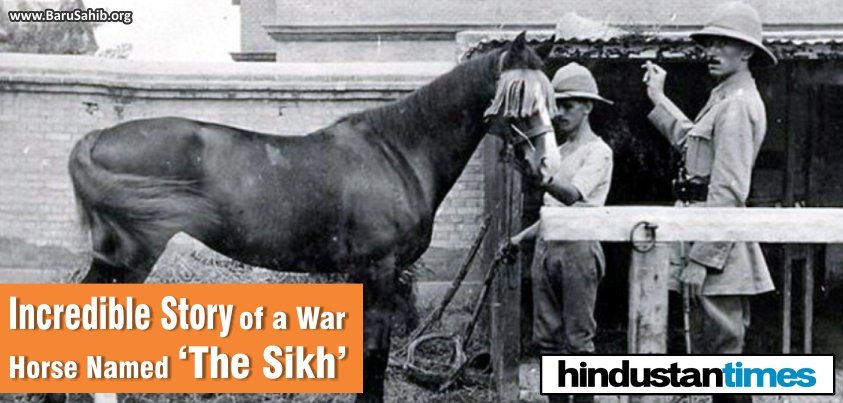An incredible story of a warhorse nicknamed Sikh that survived World War 1 has come out recently and amazed the curator of the Soldiers of Gloucestershire Museum in Britain. The museum now wanted to commemorate the life and contribution of the horse “that survived shellfire on the bloodied trenches”, said curator Chris Chatterton, who came […]
An incredible story of a warhorse nicknamed Sikh that survived World War 1 has come out recently and amazed the curator of the Soldiers of Gloucestershire Museum in Britain.
The museum now wanted to commemorate the life and contribution of the horse “that survived shellfire on the bloodied trenches”, said curator Chris Chatterton, who came across the story last week and now plans a special display of the old photo albums of Sikh and her master using the multimedia and touch-screen techniques.

Bred in Australia, the warhorse was bought to India and sold to the 36 Sikh Regiment. When the regiment was posted in China, it took the horse along, where a lieutenant of the 2nd battalion of the Gloucestershire Regiment, AC Vicary, bought the charger in 1913. “It was here that the brave warhorse was nicknamed Sikh, as it was bought from Sikh Regiment,” said Chatterton.

When World War 1 broke out, the 2nd Gloucestershire Regiment was called back to Europe. The soldiers left all their horses in China, except Sikh. It was Vicary’s association with the horse that he sought a special permission to take it with him.
“In an eight-week journey by ship to Europe, the horse was kept in a makeshift open box and allowed to stretch it legs only four times when the ships stopped for refuelling,” the British museum curator added. The horse remained a true companion to Vicary in the enormous war, from the time they first landed at Ypres in Belgium in 1915. Sikh delivered supplies to the troops, carried information from the headquarters, accompanied Vicary to victory on the Serbian and Bulgarian fronts, and then proceeded to Southern Russia when the war ended.

“The Sikh became a symbol of good luck for the soldiers after the war, as it was one of the 64,000 horses out of a million (10 lakh) that took part in it and survived,” said Chatterton. After the war, the Sikh accompanied Vicary to England and both of them retired from service to spend the rest of their lives peacefully at Vicary’s hometown in Devon.
~ Source: Hindustan Times

